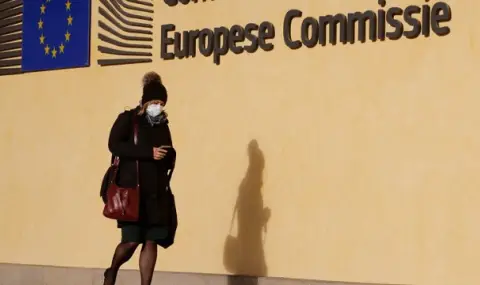The Schengen area is expanding - now with Bulgaria and Romania. But in many countries border checks remain, albeit on a random basis. How free is movement in the area?
The passing of 2024 is the year with the most internal border checks since the creation of the Schengen area almost 40 years ago. The most important transit country in the EU - Germany - has restored controls on all its land borders with its nine neighboring countries. This has never happened before - since 2015, there have only been controls on the southern German border with Austria to deter migrants passing through the Balkan route. France has also restored border controls for the first time since 2015, partly due to the threat of terrorism, but checks are rarely carried out en masse. Most countries only carry out checks at certain parts of their borders.
Foreigners who do not have valid documents or who have been banned from entering the country due to previous offences are turned back at internal borders. Anyone who applies for asylum directly at the border can enter temporarily and will be taken to an initial reception centre. Direct return of all asylum seekers is not possible under EU law.
A week ago, the Netherlands also introduced border controls for people coming from Germany and Belgium. Around the same time, interior ministers decided to fully include Romania and Bulgaria in the Schengen area from January.
The exception as a rule
The European Parliament and the European Commission have consistently stressed that systematic checks on people at the internal borders of the Schengen area should be an "absolute exception" and only a "last resort", as written in the Schengen Borders Code. However, any country can introduce border controls for a period of six months, providing a reasoned justification to the EC. The controls can then be extended for a maximum of two or, in extreme cases, three years. The justification must then be changed - often not without a certain amount of imagination. From then on, the checks can be extended for a maximum of two years. So far, the EC has not brought a single case for breaching the Schengen Borders Code, although some countries have been carrying out controls for ten years.
German Interior Minister Nancy Feiser announced that comprehensive controls at all German borders would continue indefinitely until the number of arriving migrants drops. "The Schengen area is very important for Germany, but there must also be a better distribution of refugees."
Under EU rules, asylum seekers and refugees must be accepted in the countries they first enter, i.e. directly at the external borders of the entire Schengen area. But in practice this does not happen - many migrants continue from Greece, Italy, Croatia or Spain into the EU. These people should be stopped by internal controls at the Schengen borders, sent back if possible or redirected to the EU country they first entered. To achieve this goal, the EU has adopted new laws on asylum procedures, which, however, will not come into force for another two years. Border controls at German borders will therefore remain in force for at least that long.
Are the checks useful?
The actual effect of the checks in the Schengen area is debatable. In its statistics, the Federal Police report tens of thousands who have tried to enter the country without permission. Around half of them are rejected immediately. The other half apply for asylum. Human traffickers have been arrested, thousands of detention orders have been executed. According to the police union, however, the number of people turned away is much lower. In addition, checks are only possible at certain points on the main roads.
The police only check a small number of car drivers or train passengers. They limit themselves to random checks so as not to cause huge traffic jams, as the Federal Ministry of the Interior has clearly stated.
However, the Dutch media are reporting that there have been traffic jams at the German border, which have even led to fatal car accidents. From time to time, buses from southern Europe deliberately deviate from the motorways, says Andreas Roskopf, president of the police union. Many drivers are already aware of where the checkpoints are and choose smaller roads.
Feeling of security
As the new EU Commissioner for Home Affairs and Migration, Austrian Magnus Brunner is also responsible for the Schengen area. He is aware of the increasing border controls. "We need to improve security in Europe. But we need to stick to the legal requirements. We need to work on better protection of the external borders, so that we can give people the feeling that we are in control again of who comes in."
